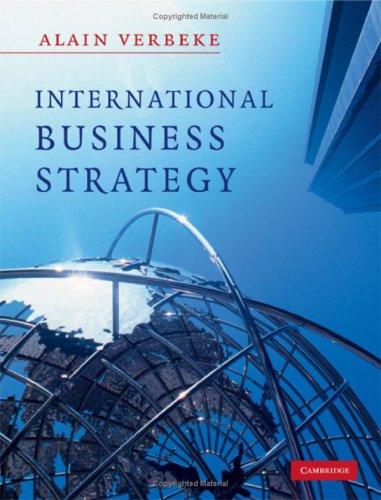What options were open to Talisman to shape the behaviour of the combatants?Case 15A.1 Talisman: an unexpected
Question:
What options were open to Talisman to shape the behaviour of the combatants?Case 15A.1 Talisman: an unexpected war?
When Talisman Energy, a Canada-based oil and gas company, bought 25 per cent of the shares in the Greater Nile Petroleum Operating Company (GNPOC)
by acquiring Arakis in August 1998, Jim Buckee, Talisman’s CEO, was full of enthusiasm about the ‘spectacular potential’ of the deal.32 Although Talisman foresaw political risks involved in the project, it never expected itself to become caught in an international storm of protest from shareholders, nongovernmental organizations (NGOs) and human rights groups both abroad and at home. Frustrated by the negative impact of the Sudan project on Talisman’s share price, the enormous managerial energy required to deal with the protests, and the danger of being de-listed from the New York Stock Exchange, Talisman sold its Sudanese oil assets in October 2002 to Oil and Natural Gas Corp, India’s national oil company.
However, Talisman’s retreat from Sudan has been a hollow victory for the campaigners. Even in early 2006, people in Southern Sudan had not really benefited from oil revenues.33 What happened during the whole process? Why did so many stakeholders want Talisman to get out of Sudan? Who actually benefited from Talisman’s departure?
Step by Step Answer:

International Business Strategy And Cross Cultural Management An Applied Approach
ISBN: 9780521862585
1st Edition
Authors: Nicole F. Richter ,Jesper Strandskov ,Sven Hauff ,Vasyl Taras





